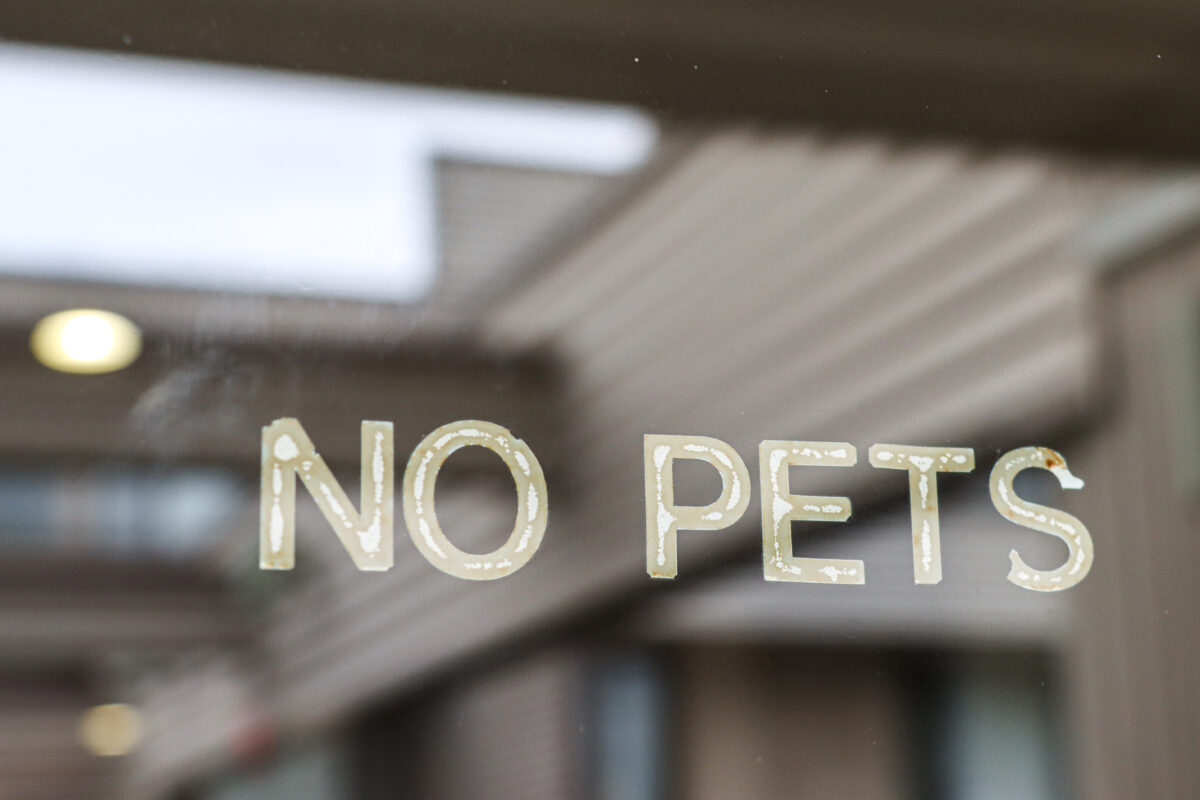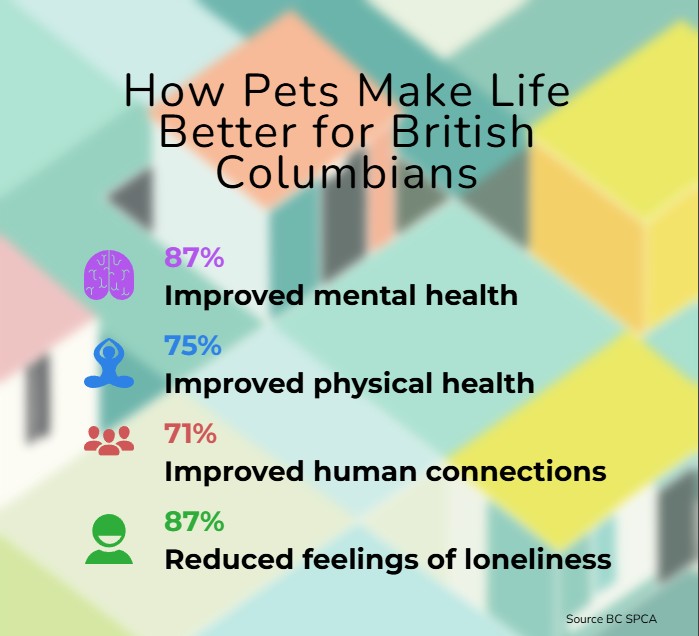
People with pets continue to face housing discrimination
More protections are needed for companion animals in B.C. experts say
By YEORGIOS PRONTZOS
When Olha Byrledianu fled the war from her native Ukraine in 2022, she was relieved to find temporary housing in Gastown. The only family Byrledianu had on her journey to B.C. was her pug Roger, with whom she shared an inseparable bond.
With a high number of drug users nearby, Roger got sick multiple times after he ate traces of harmful substances on the street outside their home.
Byrledianu knew she had to find a more suitable place to live but learned firsthand the difficulty securing affordable pet-friendly housing in Vancouver.
“I was devastated because it took me like two to three months, but I couldn’t find a place,” she said. “They didn’t want to rent a place for me because I’m a newcomer, because I don’t have credit history, because I have a dog, and a lot of people actually don’t want to share a room with you if you have a pet.”
She reached out daily to every resource she could find, including community groups, landlords and rental agencies and still found nothing.
Byrledianu, a filmmaker who produced War Tails, an award-winning documentary highlighting the toll of the war in Ukraine, was not alone in her plight.
Approximately 31 per cent of British Columbians have encountered difficulties securing pet-friendly housing, with low-income households being especially affected according to the British Columbia Society for the Prevention of Cruelty to Animals (BC SPCA). Between 2022 and 2024, the BC SPCA saw a 24 per cent increase in the total number of animals surrendered to their shelter and a 24 per cent increase in animal surrenders due to housing concerns.

Animal companionship costlier than ever
Rising costs are a major contributor to animal separation. In Canada, the average cost of dog ownership climbed 23 per cent between 2021 and 2024. Those costs include basics like adoption fees, spaying or neutering and food. The price of veterinary services has risen even more dramatically, heavily outpacing the rising cost of living.
After four months of searching with the help of her host and WorkBC, Byrledianu found a small basement that would house her and Roger.
Reflecting on her experience, Byrledianu said she wishes landlords would be more open to allowing pets and show more trust in people.
“Where I’m from, it’s much easier to find a place. People just love pets, and they are totally okay even if you have a couple of them, so for me it’s something totally new,” she said.
People with pets lack support
Animal welfare experts say the core of the issue is caretakers lack the support they need to look after their companion animals.
Alexandra Protopopova, Assistant Professor in UBC’s Animal Welfare Program said society needs to “move away from is the concept of responsible pet ownership.”
“We really need to move into what parts of society make it essentially impossible for people to retain their bonds with their pets.”
Protopopova said research shows that “tenants who have pets stay longer in their housing because they appreciate the opportunity more.”
“There is not a difference in costs to landlords. The idea that a lot of landlords might be worried about pets destroying property is not founded, and so that that is something I think landlords need to be educated on,” she said.
Most people who give up their animal companions only do so as a last resort, Protopopova said.
“We stigmatize giving up companion animals. If there is a situation where an animal will be better off in a different environment, we should be assisting people to find that correct environment for their animal, not necessarily shame them into keeping the animal, which will make it quite difficult in terms of the well-being of the person, as well as the welfare of the animal,” she said.
Cassie Preston, “No Pet Left Behind” program manager at Paws for Hope, witnesses firsthand the challenges animal caretakers in B.C. are facing. Their organization helps people in crisis situations who are at risk of surrendering their pets.
Preston and her team recently helped a single mom who couldn’t afford the $2,000 treatment for her cat’s urinary blockage. “The cost of veterinary care is a huge one, we get calls every day about that,” Preston said.
Preston also said the rising cost of housing as a major deterrent.
“We have people who volunteer in our foster programs who have said that the cost of pet-friendly rental housing is going up, so it’s not affordable for them anymore and they’ve had to move into rental housing that’s not pet-friendly,” she said.
The lack of resources and the affordability crisis are common reasons for owners to surrender their pet.
“Whether it’s requiring an extra 50 per cent of a security deposit to have a pet, or the basic rent being higher, people who are looking for housing end up surrendering their pet, because it just doesn’t look like they’re going to be able to get a pet friendly housing due to the cost,” Preston said.

Prepare a CV for your dog or cat
Lawyer Victoria Shroff has focused her practice on animal rights for 25 years and is the author of Canadian Animal Law.
Shroff recommends that anyone struggling to find pet-friendly housing should prepare a resume for their pet, so landlords can view the tenant as an attractive option. The resume should include details like the animal’s medical history and temperament.
Shroff said there are minimal protections in B.C. that help animal companions. To enable more pet-friendly housing the greatest impact will be amendments to the law, especially at the provincial level.
“Under the Residential Tenancy Act, a landlord in B.C. can refuse to allow a pet to reside with the family. They don’t have to give a reason, they can just say no.” Shroff said.
Shroff was instrumental in the Family Law Amendment Act in 2023, which classifies companion animals as family members for the first time in British Columbia.
“That’s so 1950s to say that your dog is a property, it just doesn’t resonate with anybody anymore,” Shroff said, “We’re finally seeing animals as more than a toaster, under family law.”
Shroff said there is a key disconnect in B.C. law that companion animals are considered family because the law only applies in marriage situations. Shroff hopes to see future laws that show more compassion for animals, not only in family law, but beyond.
“We are starting to acknowledge animals as more than property under the law, and that is a tremendous win for animals and for the people who love them because you’re talking about instead of having an animal being looked at as something and transforming into someone.”

